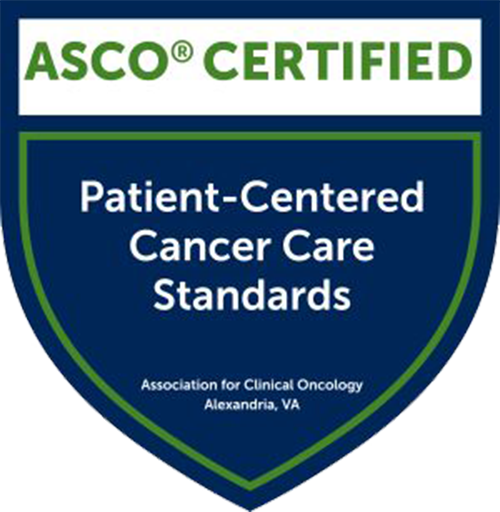What is the Oncology Medical Home?
The Oncology Medical Home (OMH) model is a guide to identify and implement a comprehensive oncology care delivery system that is focused on quality of care. It is an all-encompassing model meant for patients, care teams, and payers of all types.
In a medical home health care delivery model, the “medical home” serves as the central coordinator of a patient’s care. The goal is to ensure that quality, outcomes, and value are optimized through patient-centered care coordination. Traditionally, medical homes have been thought of as being based with a primary care physician who oversees all of a patient care needs, including specialty care. The medical home model has been around for over 40 years and has been evolved and piloted since its introduction.

Why a Medical Home for Cancer?
Given the unique nature of cancer treatment an oncology-specific medical home makes perfect sense. When a patient is diagnosed with cancer, treating the disease becomes the primary focus of medical care. This often involves highly specialized, and lengthy treatment, such as chemotherapy and radiation.
Few primary care physicians have the expertise to administer cancer treatment or deal with the many side effects that often come with them. Additionally, primary care physicians are not trained or comfortable with the intensity of symptom management (e.g., related to pain, nausea/vomiting, neuropathy, and blood count management) typically required in providing cancer treatment. As such, in most cases the oncologist functions as the patient’s primary medical caregiver during the phase of active cancer treatment and follow-up care.
In an OMH, as the medical home for the cancer patient, the oncologist is in the best position to ensure that care is coordinated and that avoidable adverse events such as emergency room visits and/or hospitalizations are minimized — with a goal of eliminating them based on process improvements. These can be detrimental to patient outcomes and substantially increase the cost of patient care.
Essential Domains of the Oncology Medical Home:
The OMH is the optimal care delivery model for value-based payment programs. It focuses on value, defined by seven domains that an Oncology Medical Home embodies. OMH practices concentrate on the processes of care, using data driven decision-making to improve patient safety and satisfaction, reduce adverse events such as avoidable admissions, and make value-based treatment decisions.
Participants in the OMH model submit data to a centralized database where they can compare their performance to other users who provide similar services or are in their area. This data is then benchmarked against the seven domains:
- 1Patient Engagement
- 2Availability and Access to Care
- 3Evidence-Based Medicine
- 4Equitable and Comprehensive Team-based Care
- 5Quality Improvement
- 6Goals of Care, Palliative and End of Life Care Discussions
- 7Chemotherapy Safety
Practices also field an OMH Patient Satisfaction Survey based on the nationally recognized Consumer Assessment of Healthcare Providers and Systems (CAHPS) tool that is tailored to the oncology setting. It solicits patient feedback about their care providers and all aspects of treatment, including communication, thoroughness of information given, and staff friendliness and interaction. Since launching in 2015, nearly 200,000 individual OMH Patient Satisfaction Surveys have been completed.
The OMH is a Foundation for Payment Reform and the Future of Cancer Care:
The OMH model can be used as the base for several different payment models currently being considered or implemented by Medicare and private payers, including modified fee-for-service, episode of care, shared savings, and more. The ultimate goal of the OMH is a sustainable system that rewards the delivery of the right care at the right time in the right place.
The OMH model encourages a cancer care system that:
- Pays based on results (i.e., quality and value)
- Is realistic in terms of maintaining the viability of the model
- Allows the right care to be delivered at the right time without hurdles. Supports cancer care that is patient-oriented and puts the needs and feedback of patients first
History of OMH
COA has led the pioneering effort to create a recognized OMH model, starting with a landmark meeting of patients, providers, and payer communities in 2012. Today the work continues with cancer care stakeholders to make the OMH a reality for more patients and cancer providers.
An OMH model was piloted on a wider scale from 2013-2015 within the Community Oncology Medical Home (COME HOME) project, which was implemented for Medicare patients in seven specialty oncology practices across the United States. The COME HOME demonstration project reported favorable results in terms of reduced hospital admissions, ED visits, and cost of care. The subsequent Center for Medicare and Medicaid Services (CMS) Oncology Care Model, launched in 190 practices in 2016 and continuing with 127 practices until 2021, draws on early OMH efforts and is tied to an alternative payment model, with incentives to improve value for cancer patients undergoing systemic therapy. In addition, the American Society of Clinical Oncology (ASCO)’s Patient-Centered Oncology Payment (PCOP) model incorporates concepts consistent with the OMH.
Initial efforts to codify standards for OMH adapted existing standards for primary care to oncology practice. Multiple organizations, including the National Committee for Quality Assurance, the Commission on Cancer, ASCO, COA, the National Coalition for Cancer Survivorship (NCCS), and others have worked to align existing quality programs to these efforts. Two sentinel, federally funded evaluations of the OMH model provided a framework of standards that inform this work: the previously referenced COME HOME project (supported by a Center for Medicare and Medicaid Innovation grant) and a Patient-Centered Outcomes Research Institute (PCORI)-funded, NCQA/NCCS-led project that tested the process of transformation of oncology practices in Southeastern Pennsylvania to an OMH model.
In July of 2021 the Community Oncology Alliance (COA) and American Society of Clinical Oncology (ASCO) jointly released new OMH standards and announced the launch of a two-year, ASCO-led OMH certification pilot.

